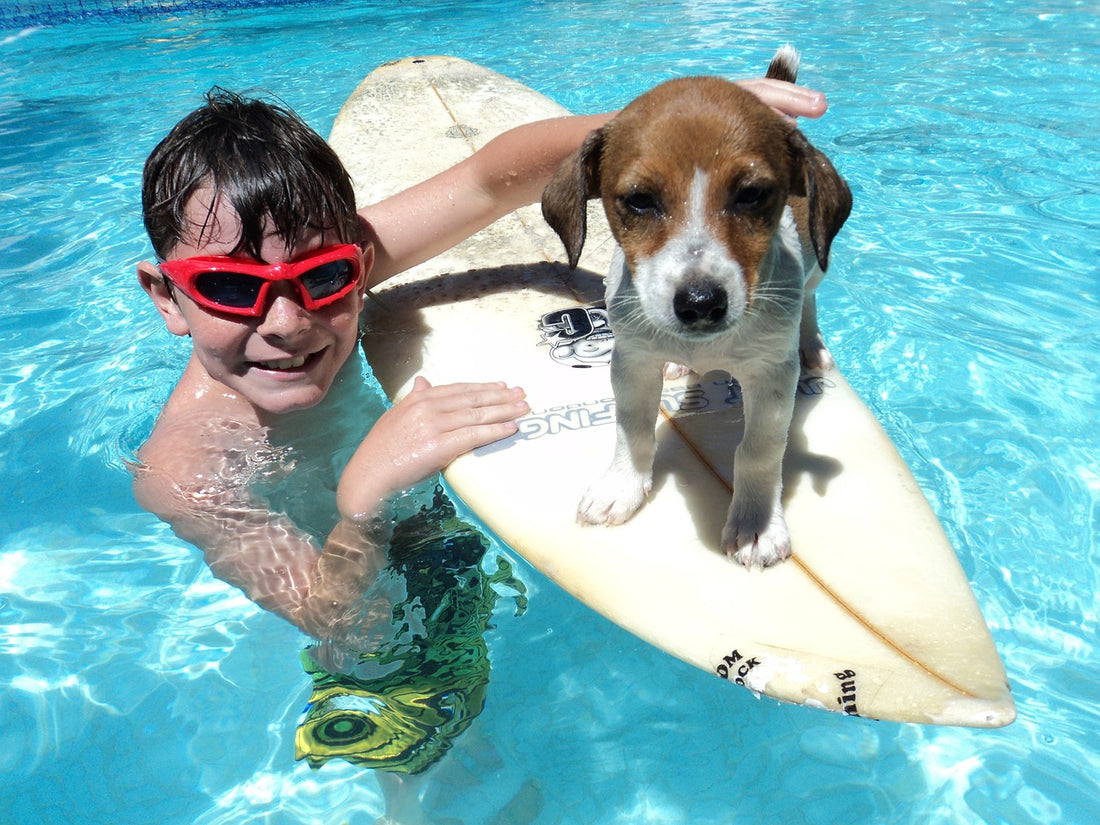Thinking of getting a new puppy? Raising a puppy is not easy and the work involved shouldn't be underestimated. You need to be prepared to dedicate a lot of time to your pup to help it get the best start in life. Knowing about the different stages of puppy development can help you to understand what they are going through and why they might behave in a certain way. Puppies go through a huge amount of changes in the first few months of their life, and the experiences they have when they are young can have a big impact on them as adults. The development of the young dog can potentially begin in the womb. Some studies have shown that if he mother is stressed out, puppies were more sensitive later in life. A litter can contain one to twenty puppies, but the average is around six or seven. The next stage of a young dogs life is when the puppy is influenced a lot by the mother. Dogs are born with closed eyes and therefore have to rely heavily on scent and their mothers guidance. New born puppies struggle with direction and tend to be very clumsy, often walking around in circles. After about 6 to 10 days they start to be able to support their limbs, but it isn't usually until 10 to 15 days that they try to walk. The next stage in a puppies life occurs when the puppies are between 2 to 4 weeks old. Their eyes start to open and their sense of smell and hearing begin to improve significantly. Next, young dogs start developing independence. They start to begin tail wagging and barking, vital social behaviours for young dogs. It is through tail wagging that dogs signal their mood and intentions to other dogs. Then the next socialisation period really begins. First they have to meet other dogs and then humans and other species are generally introduced. Then they start to learn lessons of danger and their pain perception is fully developed towards 12 weeks. At this stage in their development puppies should meet people and be put in a lot of different situations so they can establish what is safe and what is not. Some behaviourists talk about a 'fear' stage in puppy development. This is a period of time where puppies are more susceptible to developing lifelong fears. If these incidents happen earlier, they are more likely to get over it. This normally happens between 5 and 12 weeks. Between 12 and 16 weeks your puppy will probably start becoming more mature and testing boundaries. They are much more lively and confident and they also test their dominance. This is when they stop following, so it is best to start recall before this period. It is also vital to bond with them during this time so they recognise that you are important. The final stage runs from 12 weeks right through to sexual maturity. During this final transition into adulthood they are almost dog like, but not particularly elegant. They may tend to get things wrong and often learn better from other dogs and by being social. It is important to understand that every dog develops at different speeds. Some dog breeds will mature more quickly, for example larger dogs mature slower than small dogs because they don't live as long. Puberty also plays a big part, hormones will have an impact on your puppies behaviour quite a lot. Puberty normally occurs by 6 or 7 months. It is best to expose puppies to as many different sounds, situations, people and animals as possible before they reach maturity. This will make them much less likely to become fearful later in life and help them to develop into a healthy, happy, confident young adult.

